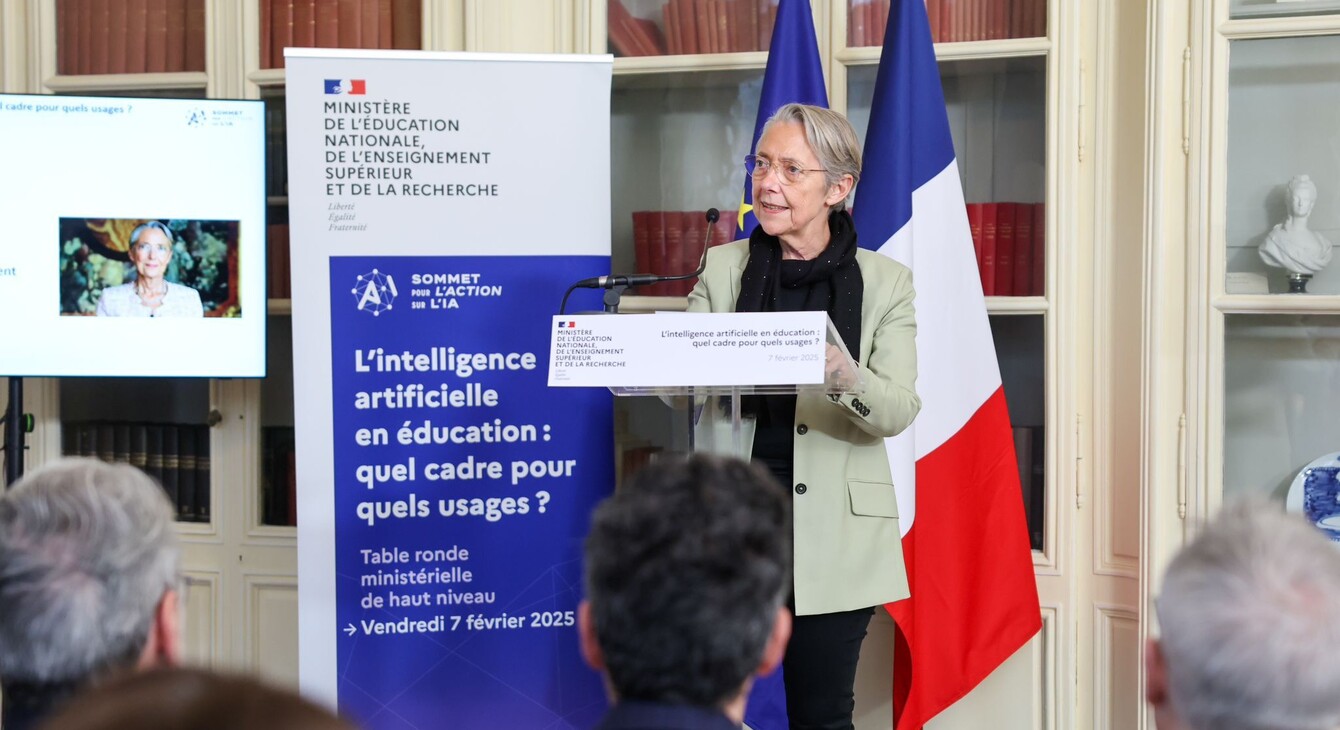An official announcement that is causing debate
It is now official. Elisabeth Borne, Minister of National Education, confirmed it in The Official Government Publication : from the start of the 2025 school year, 4th and 2nd year students will benefit from mandatory online training in generative artificial intelligence.
This announcement marks an important step in the institutional recognition of AI as a major educational issue. But beyond the announcement effect, this initiative raises a lot of questions about its implementation and its real effectiveness.
On Paper: A Promising Initiative
On paper, it's great news. National Education is not turning a blind eye to this technological revolution. It tries to accompany rather than suffer, adopting a proactive posture in the face of a phenomenon that is already profoundly transforming our society.
This proactive approach deserves to be welcomed: rather than prohibiting or ignoring AI, the school institution is choosing to train students in these new tools.
In fact: a format that questions
But in fact, we can ask ourselves questions. The announced format reveals certain limits that question the real ambition of this training course:
Express Training
10 modules Representing between 30 minutes and 1.5 hours in total, dispensed Independently on the Pix Platform.
These figures reveal the nature of this initiation: it is a Express Initiation, Not Training thorough. For a subject as complex and with such vast implications as AI, this format seems particularly restricted.
Insufficient pedagogical supervision
Two particularly problematic aspects emerge from this approach:
- Without Trained Teachers : How can teachers support students on a subject that they do not master themselves?
- Without experts involved : The absence of intervention from specialists in the field deprives students of an expert and up-to-date perspective on these technologies.
An underexploited French potential
This situation seems all the more regrettable becauseIn France, there is no shortage of talent. Our tech ecosystem and our AI experts could greatly contribute to enriching this training.
I sincerely hope that I am wrong and that the final program will be richer, more ambitious and more embodied than what was announced today.
The Risk of Generational Lag
Otherwise, I bet on middle school students who are already self-trained and much more comfortable with these tools than the training offered or their teachers will be.
This situation could create a paradox: students who are more competent than their trainers, reducing the pedagogical effectiveness of the entire system.
Four Fundamental Questions
This announcement raises several key questions:
Is 1. 4th Not Too Late Already?
Shouldn't the age of introduction to these technologies be earlier, given their increasing omnipresence in our daily lives?
2. A Missed Opportunity to Involve Teachers?
Are we not missing an opportunity to massively train teachers, creating a greater multiplier effect?
3. Training vs. Addiction: The Right Balance
Will we succeed in training to boost learning and develop critical thinking skills, rather than creating a dependency on tools?
4. Theory vs. Practice: The Right Dosage
Shouldn't practice be preferred over theory for a real appropriation of these technologies?
The Challenge That Awaits Our Minister
This is the challenge that awaits our Minister : transform this announcement into a truly effective educational system, capable of preparing students for the challenges of tomorrow.
I can't wait to see how this training will be deployed in practice and what its results will be in the field.
An Educational Revolution to Be Experienced
Personally, I would have loved to have been a middle school student at that time and experienced this revolution from within. Despite the limitations identified, this initiative marks a historic turning point in the integration of new technologies in schools.
The Importance of Pedagogy: Our Feedback
Chez HEYIA Studio, we regularly train marketing teams to use AI to create, not copy. Our experience teaches us a fundamental lesson: Without Adapted Pedagogy and Concrete Workshops, No Lasting Impact.
This expertise confirms to us that the success of AI training at school will largely depend on the quality of educational support and the practical dimension of learning.
Do you want to train your teams in AI in an effective and practical way? Discover our educational approach at HEYIA Studio: we create tailor-made training courses to transform AI into a real tool for creativity.









